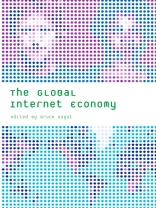By 2002, all but a handful of countries were connected to the Internet. The intertwining of the Internet and the globalization of finance, corporate governance, and trade raises questions about national models of technology development and property rights. The sudden ability of hundreds of millions of users to gain access to a global communication infrastructure spurred the creation of new firms and economic opportunities. The Internet challenged existing institutions and powerful interests: technology was global, but its economic and business development was molded in the context of prevailing national institutions.Comparing the experiences of seven countries-France, Germany, India, Japan, Sweden, South Korea, and the United States-this book analyzes the rise of the Internet and its impact on changing national institutions. Each country chapter describes how the Internet developed, evaluates the extent to which the Silicon Valley model was adopted, and suggests why certain sectors and technologies developed faster than others. The book also analyzes specific Internet sectors and regulations across countries. It shows that the Internet’s effects are more evolutionary than revolutionary. At the same time, the impact of broad cultural change on entrepreneurial aspirations is clearly visible in certain nations, especially India and Sweden.
Bruce Kogut
Global Internet Economy [PDF ebook]
Global Internet Economy [PDF ebook]
Купите эту электронную книгу и получите еще одну БЕСПЛАТНО!
язык английский ● Формат PDF ● страницы 540 ● ISBN 9780262277365 ● редактор Bruce Kogut ● издатель THE MIT PRESS ● опубликованный 2004 ● Загружаемые 3 раз ● валюта EUR ● Код товара 8104893 ● Защита от копирования Adobe DRM
Требуется устройство для чтения электронных книг с поддержкой DRM












